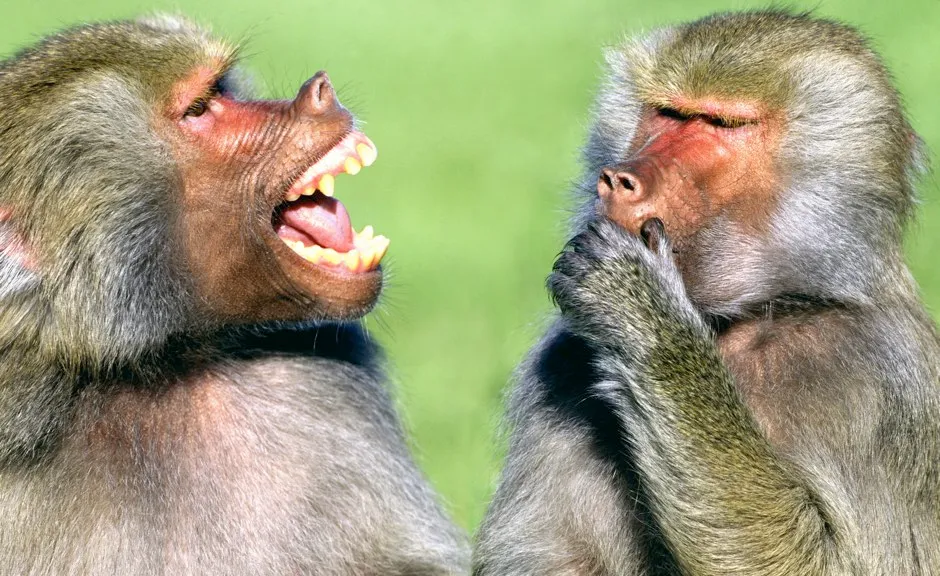Until a few weeks ago, most people had never contemplated, or even heard of, social distancing. But now, thanks to the coronavirus outbreak, it’s everywhere. No gatherings, no getting together with friends, no going out to bars or restaurants or sporting events.
This extreme instruction to stay away from each other is a necessary step to fight the global pandemic the world faces. It is also really hard to bear because it runs counter to one of our most fundamental instincts: the need to connect.
The depth of that need is not to be underestimated. Friendship shapes our biology and is a critical piece of our evolutionary story. Furthermore, being there for each other, especially in a time of need, is one of friendship’s most fundamental characteristics. That means, amidst growing fears of contagion, we will need our friends more than ever, even if we have to be friendly from a distance.
Our recognition of the biology and evolution of friendship is relatively new. For centuries, friendship was long considered a pleasurable by-product of human civilisation. Most scientists didn’t study it. It was too squishy, too ephemeral, too hard to define and measure, and defining and measuring are essential to the scientific process.
That began to change in the 1980s when a handful of epidemiologists first noticed a link between social relationships and health. Strikingly, people with more friends lived longer than those who were socially isolated. The question was why.
One possibility was a concept called “social support,” which covers everything from providing an ear to providing a ride to the hospital should a friend need to go. It’s easy to see why the latter, at least, would make a difference when it comes to mortality.
Read more about social networks:
- Hikikomori: identifying extreme social isolation around the globe
- You are not alone: dealing with the epidemic of chronic loneliness
- Staying socially active in middle age could help keep dementia at bay
But once the link between health and relationships had been established in humans, it began to show up in other species as well. Primatologists studying baboons in Africa noticed that the animals they watched seemed to have friends, too.
A debate ensued about whether it was appropriate to use the word “friend” when talking about animals. In the end, the scientists decided to call it like they saw it, and what they saw was friendship.

The researchers gathered data on the interactions between individuals, over the lifetimes of generations of animals, and they kept track of what happened to each animal over the long term. The result was multiple studies showing that animals with the strongest social networks live longer and have greater reproductive success than those that are more isolated. In evolutionary terms, you can’t do better than that. Natural selection has resulted in survival of the friendliest.
Since baboons don’t drive each other to the hospital, something deeper than social support must also be at work.Friendship gets “under the skin,” as biologists say. It is in our DNA, it changes the way our genes express themselves, and fine-tunes the circuitry in our brains.
Read more about the coronavirus:
- Coronavirus: can herd immunity protect us from COVID-19?
- How are scientists developing a coronavirus vaccine?
- Is hand-washing really the best thing we can do to stop the spread of the coronavirus?
Friendship is as important to our health as diet and exercise. Some of the mechanisms by which it works have yet to be explained, but studies have demonstrated that social connection improves cardiovascular functioning, reduces susceptibility to inflammation and (ahem) viral disease, sharpens cognition, reduces depression, lowers stress and even slows biological aging.
This new science of friendship has also provided a clearer definition of what friendship is. By watching other animals, where it is easier to strip away the complex variables of human life, evolutionary biologists concluded that friendship in monkeys as well as people required at least three things: it had to be long-lasting, positive and cooperative.
When an anthropologist looked for consistent definitions of friendship across cultures, he found something similar. Friendships were described as positive, and they nearly always include a willingness to help, especially in times of crisis. What friendship is about at the end of the day is creating intensely bonded groups that act as protection to life’s stresses.
Friendship in the time of coronavirus
Which brings us back to the present day. Now is the time to think of how to protect each other in this stressful time. The science of friendship can offer some guidance.
What it takes to be a good friend echoes the defining characteristics of friendship as long-lasting, positive and cooperative. That means friends are reliable. They make each other feel good. They show up for each other. They notice what’s going on in each other’s lives and respond. They reciprocate. They help in a crisis. Even now, it is possible to do those things, even if we can’t do them in close proximity.
First, we must cooperate. The human ability to work together has led to tremendous achievements. Cooperation is fundamental to the urge to befriend and build positive bonds.
That means we must work together now for the greater good, for the protection of the more vulnerable among us, in order to slow the spread of this very contagious coronavirus and help reduce the strain on the health care systems.
Think of it as physical, not social distancing. In a very important sense, the term “social distancing” is inaccurate. What we need to do is separate ourselves physically. Specifically, we need to interact from two metres away or via the Internet or phone lines.
But that doesn’t mean you can’t be social. If anything, we need to socialise more than ever; to quell each other’s anxiety, to commiserate over disappointments and disruptions, to brainstorm about at-home activities, and even to make each other laugh.
Read more about staying happy:
- Eat yourself happy: How the microbes in your gut hold the key to health and happiness (and what you can do to nourish them)
- The science of happiness: seven books to bring a smile to your face
- How the happiest people on the planet keep smiling
Embrace digital friendship. In spite of fear that social media and smartphones are taking us away from each other, the virtues of virtual connection are undeniable at this moment.
Fortunately, the most up-to-date research shows that if we use social media as one more channel with which to connect to people we normally see in other ways, those bonds will be stronger.
Skype and FaceTime are not equal substitutes for face-to-face time, but they are infinitely better than nothing.
Social media also allows for building bonds with people who know just what you’re going through. Early on in this crisis, a psychotherapist in China created online support groups to help people there deal with their anxiety and loneliness during quarantine. Passengers from the Diamond Princess cruise ship, who had befriended each other during the trip, kept in touch via text while quarantined in Japanese hospitals.

Such interaction can be a powerful help in getting people through a crisis, even if it is with relatively new friends.
Although some people fear that the experience of the coronavirus pandemic will change the way we interact when it’s all over, science doesn’t bear that out. Sociologists find that even as circumstances change around us people work to protect core relationships.
When the pandemic finally slows and people can return to bars and restaurants and birthday parties and just hang out together, they will undoubtedly greet each other with joy and hugs. They just ought to wash their hands first.
Friendship: The Evolution, Biology and Extraordinary Power of Life’s Fundamental Bond by Lydia Denworth is out now (£16.99, Bloomsbury Sigma)
